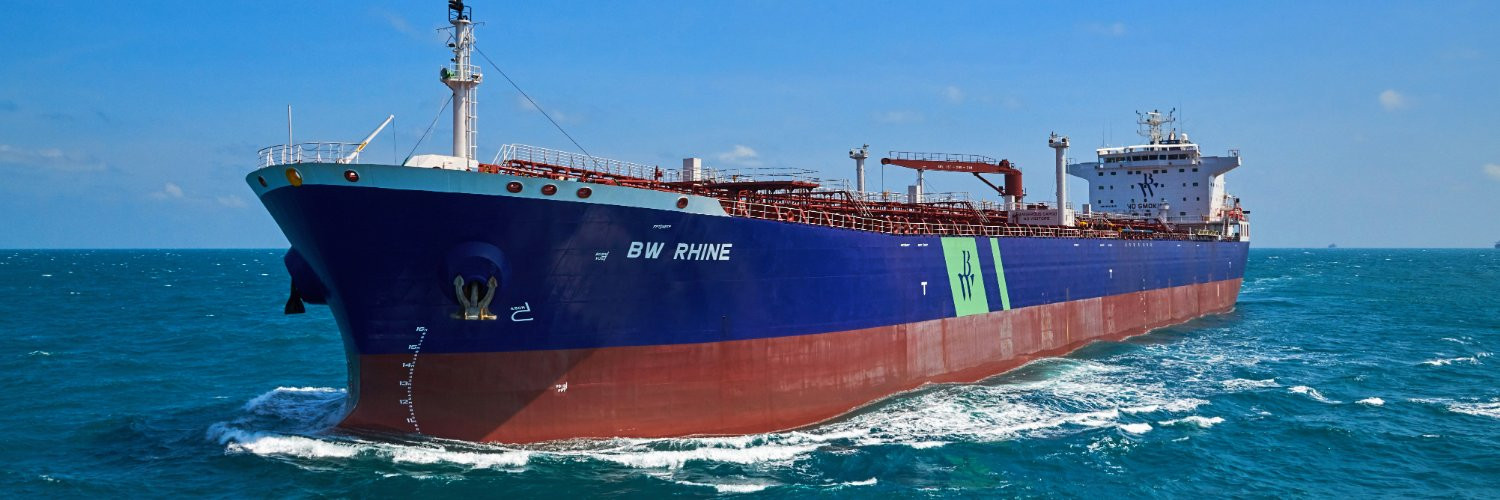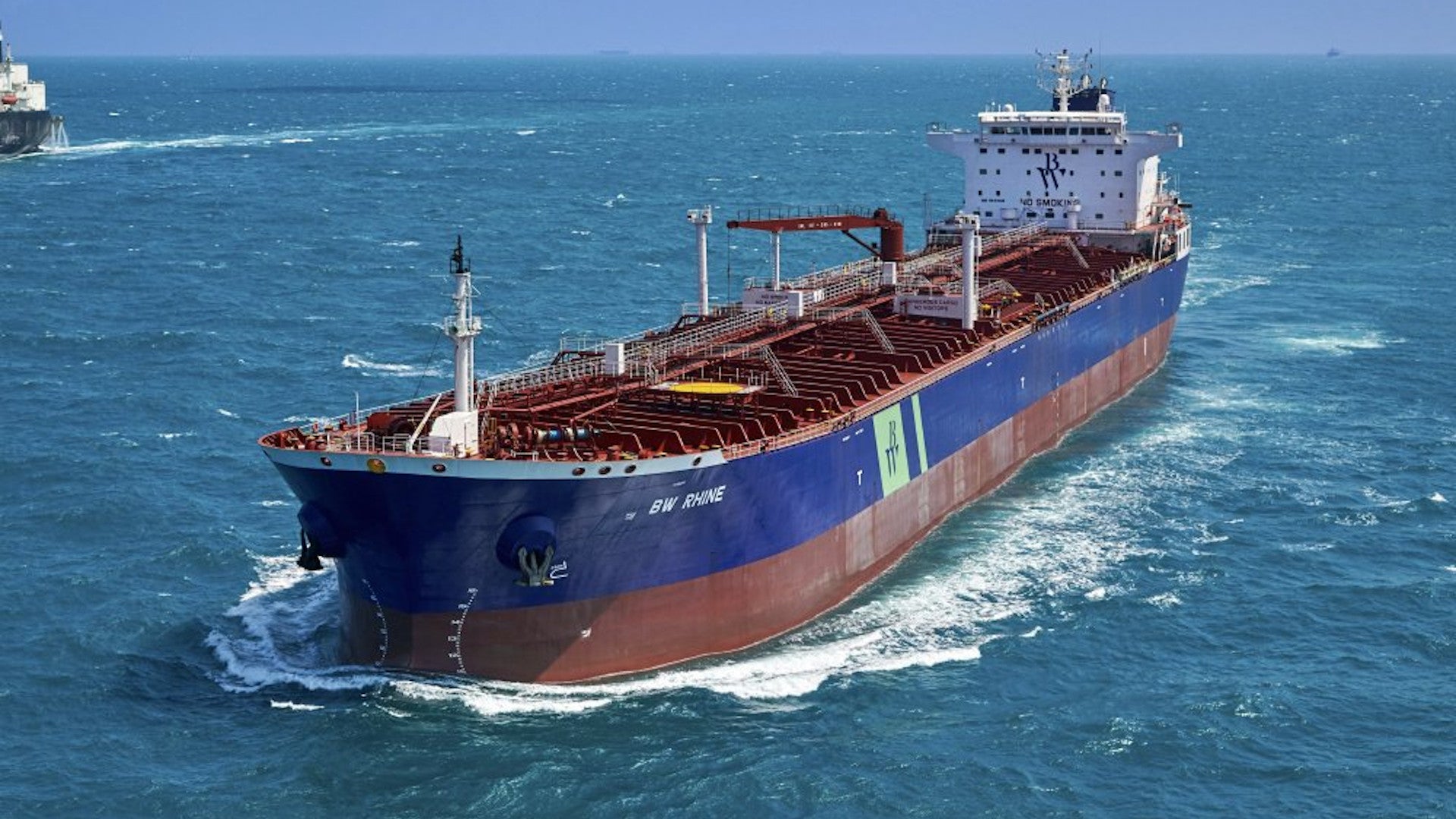Saudi Arabian authorities say an attack on a Singapore-flagged oil tanker BW Rhine, which took place at an oil terminal in the port city of Jeddah in the Red Sea earlier today, was carried out using an explosive-laden boat. This is a tactic that Iranian-backed Houthi rebels based in Yemen have used on multiple occasions. It also follows a string of attacks and attempted attacks targeting tankers and other coastal oil infrastructure in this region, some of which bore certain hallmarks of other past incidents linked to Iran and its regional proxies.
The statement from Saudi Arabia’s Energy Ministry, via the country’s state-run Saudi Press Agency, also described the incident as a “terrorist attack,” but did not directly accuse any specific group of carrying it out. No terrorist or militant organization has claimed responsibility so far.

“These acts of terrorism and vandalism, directed against vital installations, go beyond the kingdom and its vital facilities, to the security and stability of energy supplies to the world and the global economy,” the statement added. BW Rhine had been discharging its cargo of gasoline, which it had brought from the Saudi port Yanbu under charter to the oil company Aramco, in Jeddah at the time of the attack.
Saudi officials only issued that statement approximately 12 hours after the attack occurred. The BW Rhine came under attack at 12:40 AM local time on Dec. 14, according to an earlier statement from Hafnia, part of the BW Group, which owns and operates the ships. That press release had only blamed the explosion that hit the ship on an “external source.”
“The Master [of the ship] immediately ceased all discharge operations and enacted emergency procedures onboard. The crew have extinguished the fire with assistance from the shore fire brigade and tug boats, and all 22 seafarers have been accounted for with no injuries,” Hafnia’s statement added.
“Hull damage has occurred at 5P WBT (water ballast tank 5 on the port side) and 4P COT (cargo tank 4 on the port side). It is possible that some oil has escaped from the vessel, but this has not been confirmed and instrumentation currently indicates that oil levels on board are at the same level as before the incident.
“Cooling procedures and inerting of cargo space have been initiated to avoid reignition of fire,” it continued. “Ship stability is being assessed before proceeding with any further operations.”
An alert that the U.K. Maritime Trade Operations group subsequently issued said that the attack forced the closure of the port of Jeddah for some amount of time, citing the Jeddah Maritime Rescue Co-ordination Center. At the time of writing, Saudi Arabian authorities had neither confirmed nor denied any such port closure.
This is the fourth known attack or attempted attack on a tanker or other coastal oil infrastructure along Saudi Arabia’s southern Red Sea coast since the beginning of November, according to Ambrey, a maritime security firm. On Nov. 11, there was another attempted attack on the oil terminal in Jizan, to the south of Jeddah, involving an explosive-laden boat. On Nov. 25, the Malta-flagged MT Agrari
was struck by what may have been a limpet mine, drawing comparisons to attacks on tankers in the Gulf of Oman last year that were linked to Iran or its regional proxies.
In addition, on Nov. 23, a ground-launched cruise missile struck an oil-related facility outside of Jeddah. Houthi rebels in Yemen did claim responsibility for that strike, which also evoked memories of an unprecedented cruise missile and drone attacks on multiple oil infrastructure targets much further to the northwest in Saudi Arabia in 2019. The Houthis initially claimed responsibility for those strikes, but the U.S. government subsequently accused Iran of having carried them out directly.
The Sierra Leone-flagged cargo ship MV Hasan came under some form of attack while sailing off the coast of Yemen in the Gulf of Aden on Dec. 5. The exact circumstances surrounding that incident remain murky, but the vessel and its crew escaped unscathed.
Ambrey also noted that there had been reports of a foiled explosive boat attack in the Red Sea on Dec. 9 and that another explosive-laden watercraft had been seized off the coast of Yemen the month before. The Saudi Arabian-led coalition fighting the Houthi rebels in Yemen regularly reports having captured or destroyed these kinds of boats, which are remote-controlled or otherwise unmanned, in the region. The Houthis have been employing them for years now, successfully targeting warships and commercial vessels.
Still, the attack on BW Rhine does represent a notable uptick in such attacks and attempted attacks in recent weeks and a significant increase in incidents occurring in and around Saudi port cities along the Red Sea, rather than somewhere out in that body of water or in the nearby Gulf of Aden. The Bab Al Mandab Strait that links the Red Sea to the Gulf of Aden is an immensely strategic waterway for oil and other petroleum exports from the region, as well as other commercial shipping. The Houthis have threatened to effectively blockade the Red Sea in the past, using explosive-laden boats, as well as naval mines and shore-based anti-ship cruise missiles, in response to the actions of the Saudi Arabian-led coalition.
The exact combination factors that may be driving this new surge in attacks in the region is unclear, but they did appear to start following the election loss of President Donald Trump to President-Elect Joe Biden in November. The Trump Administration has pursued a hard-line strategy against Iran over the past four years, notably withdrawing from the controversial multi-national deal regarding Tehran’s nuclear program. The incoming Biden Administration, which will take over in January, has expressed interest in rejoining that agreement, formally known as the Joint Comprehensive Plan of Action. These attacks could be intended to add further pressure on the U.S. government, as well as its regional allies, to acquiesce to other Iranian demands as part of any such negotiations.
The Trump Administration has also been pushing Saudi Arabia to normalize its relations with Israel, as a number of other countries have recently agreed to do through U.S.-brokered deals. A clear goal of this diplomatic push has been to further isolate Iran.
In addition, nefarious activities in and around the Red Sea are also now coming in the wake of the assassination of top Iranian nuclear scientist Mohsen Fakhrizadeh, an operation Iran says that Israel carried out and for which it has threatened to retaliate. Asymmetric attacks, including those carried out by regional proxies, are among the most likely avenues for the regime in Tehran to respond to that attack on its own soil. Just last week, there were reports that the U.S. military forces in the region had gone on heightened alert due to concerns about potential Iranian or Iranian-backed attacks.
Whatever the case, the worrisome trend in attacks in the Red Sea region that has been visible for weeks now does not show any signs of decelerating.
Contact the author: joe@thedrive.com
